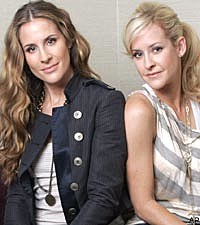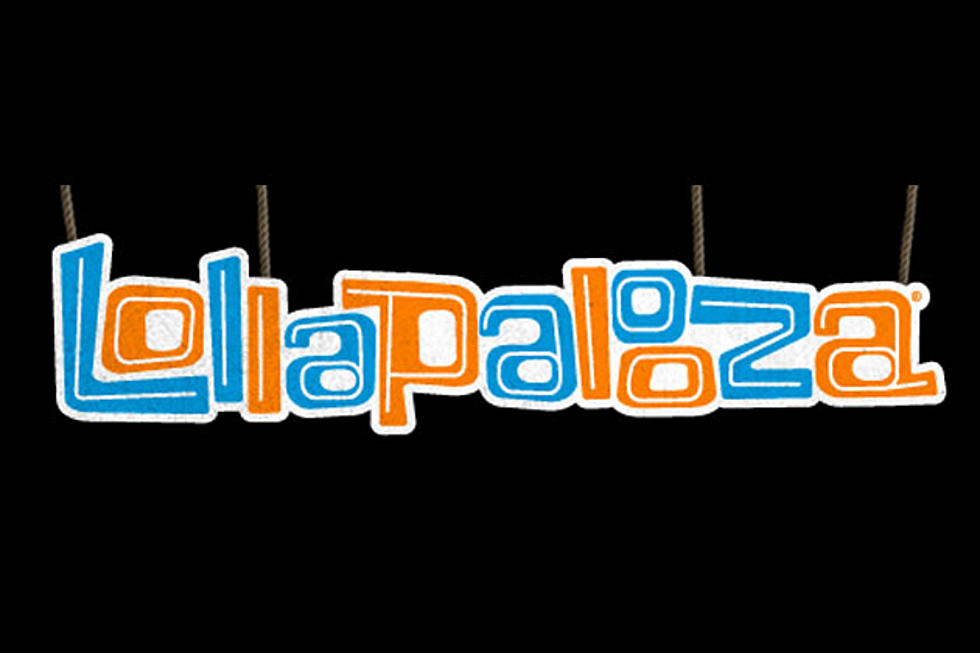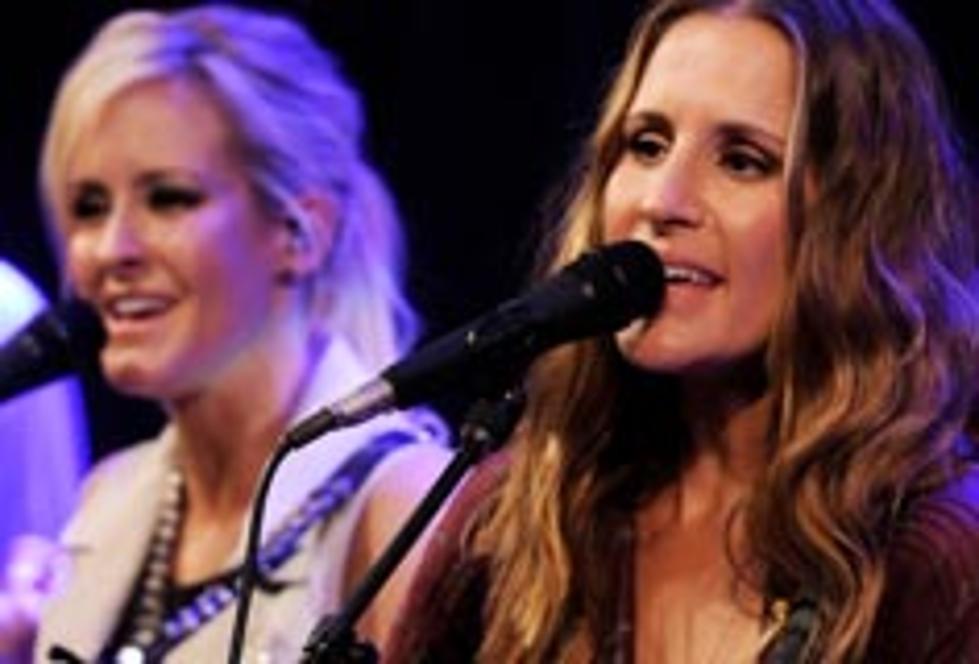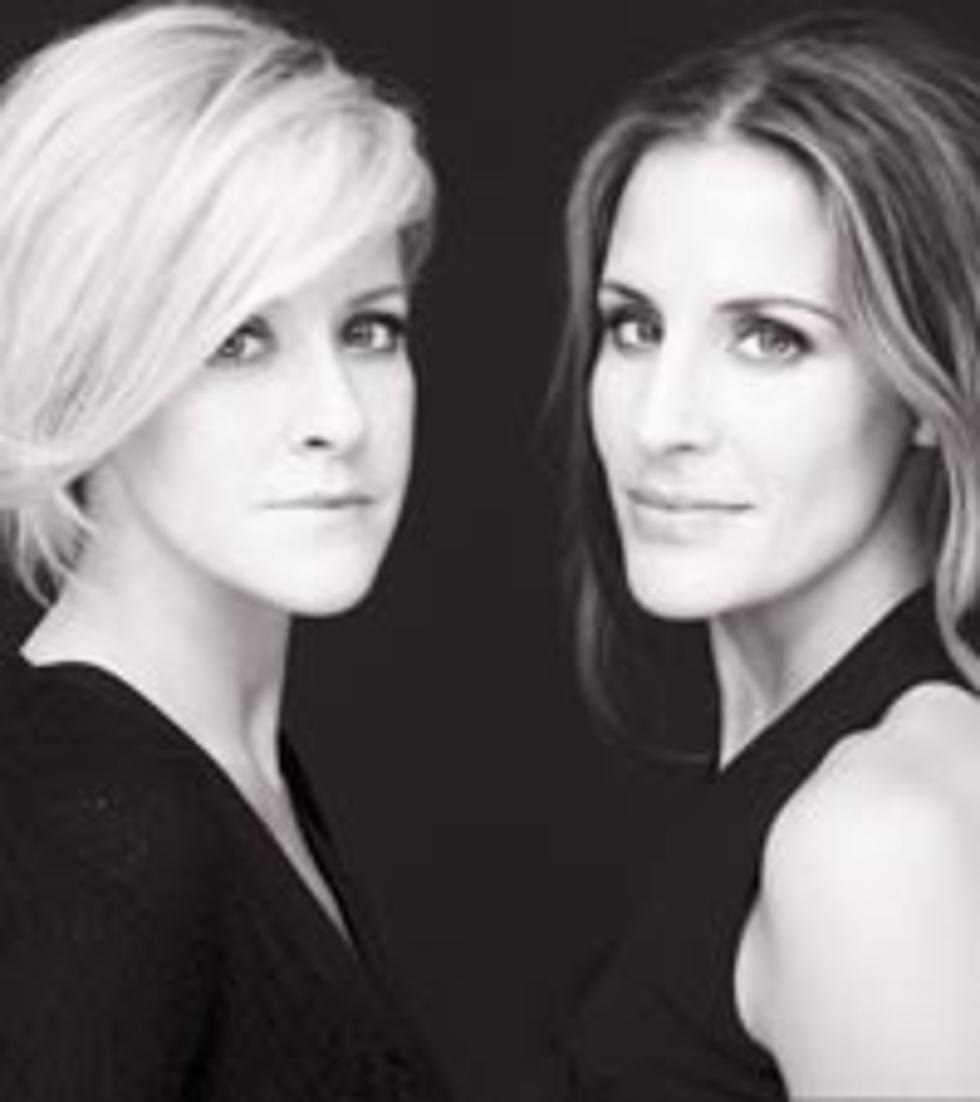
Court Yard Hounds Have Great View From ‘The Coast’
 Although as the Court Yard Hounds, they're a new act , sisters Emily Robison and Martie Maguire have been playing music together their entire lives. Yet with the two incarnations of the Dixie Chicks, the band they first formed in Texas with Laura Lynch and Robin Macy, and then shot to superstardom with when Natalie Maines took over as lead singer, they settled into their role as two of music's most recognizable "sidewomen."
Although as the Court Yard Hounds, they're a new act , sisters Emily Robison and Martie Maguire have been playing music together their entire lives. Yet with the two incarnations of the Dixie Chicks, the band they first formed in Texas with Laura Lynch and Robin Macy, and then shot to superstardom with when Natalie Maines took over as lead singer, they settled into their role as two of music's most recognizable "sidewomen."
But while Natalie was taking a hiatus from music, Martie and Emily found themselves itching to work on new material. Martie began work on a fiddle album, while Emily, divorced in 2008 from singer-songwriter Charlie Robison after nine years of marriage, found a cathartic voice in writing many of the tunes that have found their way onto the Court Yard Hounds self-titled debut (out May 4). From the first single, the breezy summer anthem 'The Coast,' to the caustic 'Ain't No Son,' the sweetly confessional 'Fear of Wasted Time' and the refreshingly optimistic 'Delight (Something New Under the Sun), the Court Yard Hounds have come unleashed with a folk-pop-country hybrid that builds on the bluegrass roots of their youth, satisfies Chicks fans who reveled in their expert musicianship, and is sure to capture a whole new crop of fans.
The Boot talks with Emily and Martie about the inspiration behind their songs and their sound, the upcoming Dixie Chicks tour with the Eagles, and whether or not the "reunion" might lead to more Chicks music in the future.
Emily, what inspired you to write 'The Coast'?
Emily Robison: The inspiration comes from he phenomenon of people in South Texas when -- on spring break or the weekend -- they say, "I'm going down to the coast," our coast at the Gulf. It just seems like a destination for a lot of people hanging out there, and the culture down there seems very relaxed. A lot of my friends go down there and my ex took me down there a lot with the kids. The song came fairly quickly to me. I woke up one morning and I heard the melody in my head, and I went and wrote it in about an hour -- which is very not like me. It usually takes me a few weeks to finish a song. So it was just so clear to me, it was more of painting a picture of this place. Everyone is familiar with the East coast and the West coast, but not so much the Texas coast.
Listen to 'The Coast'
Yet the song does have a very California coast feel to it.
Emily: Yeah, I wanted it to be laid back and I heard fiddle on it; I heard Martie's instrumentation on it. I don't want to make it more than it is. To me, it's just a portrait of a place. It's easy and it's a comfortable place to be, and I wanted to write a song about that.
 Is it easy for your to hear what Martie's instrumentation might sound like on a song?
Is it easy for your to hear what Martie's instrumentation might sound like on a song?
Emily: Sometimes it's conscious, I think, more than not. When I would hear where Martie's part would come in or where she's put her harmony or if she she would orchestrate something with a quartet. No matter what it happens to be, I always have her instrumentation in mind. But I do think it is more of an unconscious thing just because we've always played together and worked together.
Sometimes it's hard to tell who's singing lead and who's singing harmony.
Emily: Yeah, I'm singing lead. But that's interesting because sometimes we hear something and we're like, "Is that you or is that me?" Sometimes we can't remember who sings a certain "la-la-la" part or a background part!
How important was it on this project to develop a sound that was different from the Dixie Chicks?
Martie Maguire: We knew the sound automatically was going to have similarities just because of our instrumentation, and we're two-thirds of the Dixie Chicks. So, the minute you put a fiddle on something with the harmony ... But a lot of the two-part harmony, we really felt the songs that Emily wrote called for two voices, not three like we traditionally did in the Chicks. Emily's voice is so dramatically different from Natalie's in style, that that was a good way to set the music apart. The songs were very personal to Emily when she wrote them, so we felt like that in itself -- even though we all three wrote for the Chicks album -- this time it was kind of Emily's meditative writing on her own and singing her own songs and telling her own stories. That was a strong way to start with a totally different sound. We talked to the guy who ended up being our co-producer, Jim Scott, about how to create a sound. Our instincts were to just let it happen naturally, and he said, "That's exactly right -- you're a new band, you have new songs that aren't Dixie Chicks songs, they're your songs, and you just do what's right for the tune and hopefully a sound emerges." And that was great advice, because at the beginning, we were really wanting to have our own sound. And you don't know what that is until you get in the studio. And having a studio where we can go and create and experiment that's our own -- we recorded at my house -- that was so freeing and nice.
When this album was coming together, was there any concern about the genre that this music would fit into?
Martie: Not really, because Emily was doing her own demos and she would give the songs to me and they were basically complete. Some of them were guitar-vocal, but some of them had a Dobro part or had a garage-band drum loop, just to kind of get her idea across. So it was all in her head, and when I got them it was actually hard to add a full band to them because I was so married to the demos. Emily doesn't really write with a genre in mind, she writes with an idea or a melody, and that drives it. I'm the same kind of songwriter. [I don't say] "I'm gonna sit down and write a rock song" or "I'm gonna sit down a write a country song." We have a bluegrass background and that tends to seep into things, the kind of acoustic nature of things [on songs like] 'Ain't No Son' and 'The Coast,' the very dry acoustic sound comes from our love of liking the natural sound of instruments. It's not a very affected sound. That sometimes can lean more country or more acoustic, but ... when we put an electric guitar in there, that would take it in a rock direction. I think Rolling Stone called it "folk-rock," which I thought was an interesting categorization.
So, Martie, did you personally not have that much to do with writing of any of the songs on the record?
Martie: Not really. We started co-writing late in the game -- I didn't even know she was writing! She was basically doing it out of boredom. The Chicks were taking a longer hiatus than we wanted to take, so we were spending our time in different ways. At that point, Natalie was gardening and hanging out with her kids and going to Hawaii a lot, and she had her agenda. And then I was doing a fiddle record in my studio, recording old fiddle tunes that I used to learn as a child. And I was trying to have another baby. And then Emily starts sending me these songs, and I'm like, "Oh I guess this is what you were doing!" Because she had over 30 songs. Even though we talk all of the time, I wasn't aware she was in her music room turning out all of these songs. I think, in her mind, it was her way of expressing herself musically when we couldn't. When the Chicks weren't working, it was very frustrating for both of us because we needed a musical outlet. I co-wrote one or two on the record and I wrote one on my own, but I came to the table late in the game and she had so many songs and I loved them so much, it wasn't a concern of mine at all. For the next album, we will do more co-writing.
 What's the status of your fiddle record?
What's the status of your fiddle record?
Martie: It's getting there! [laughs] This kind of trumped it because it never entered my mind that Emily and I should start a band on our own. Especially after the Chicks' success, it's hard to think of starting over. We graduated from Motel 6 and smoky pubs a long time ago, and now we find ourselves not quite at Motel 6 but back at the smoky pubs. So a lot of that is really fun and new and exciting, but that wasn't really what I thought we would be doing. And then the songs excited me so much that I thought, "There's not much opportunity out there for promoting a strictly instrumental fiddle record." And I'm really glad I did it, because it was something I wanted to check off my list, like people who want to climb Mt. Everest. [laughs] It was something I really wanted to do for me, but this project definitely trumps up. It will come out some day.
What was the whole South by Southwest experience like for you?
Martie: It was like coming full circle back to our home turf ... and the nerves and butterflies of how we will be perceived and, "Wow, we're back where we started." There were so many question marks in our mind, but we felt like this was the right place to launch a new project and endeavor. We just couldn't believe the welcoming back we got, just from individual people showing up for sound check and showing up for the shows and talking afterward [like a] blast from the past, even from the bluegrass days, that we couldn't believe. Just the overall feeling and people saying "we missed you, we're so glad you're back and we support you 100 percent." And then just reading the reviews, we felt even more love. It was nice to get through that first week coming out as the Court Yard Hounds. We definitely feel the love and support!
Neither one of you did much talking on stage during the show, you just got right into the music.
Martie: SXSW is all about the music and the collaboration. So there were two things we really wanted to do -- we wanted to show a very collaborative side of ourselves, and since Jakob Dylan, who is on the record on a duet, was gonna be in town, we wanted to get him up to sing 'See You in the Spring.' And we did a cover tune of a Rod Stewart song ['You Wear It Well'], and that just felt spur-of-the-moment and fun. And that's what SXSW is all about. The other thing we wanted to do was just to get as much of our music out there; we just wanted to play, because that's what we really miss. So, the fact that there wasn't as much talking I think was just by nature because they only give us 55 minutes and we were thinking, "OK, how many songs can we squeeze in here?" The record wasn't out, people could hear a few songs on our website, but we were really excited about the music and just wanted to play, play, play.
What can fans expect for the upcoming Court Yard Hounds tour?
Emily: I don't know that we've figured that out yet. [laughs] One of the things early in a band, you're trying to tweak those set lists and figure out what works and what doesn't work. Something that may be so fun to play on the album doesn't always necessarily connect with the audience. So, just finding out all those things for me, that's a product of playing more and more. We do our first shows, actually, right in the middle of the Chicks/Eagles shows at the Telluride Bluegrass Festival, and that's a dream come true for Martie and I because we grew up going to that festival and seeing our heroes play. We want to put together a really cool hour-show for that festival that basically sums up the album -- maybe some more jam-type songs to showcase our playing and maybe a cool cover or two.
And for the Court Yard Hound shows, will you do any of the Dixie Chicks songs?
Emily: At this point, I don't think we will be doing any Chicks songs. I don't think we'll need them quite yet, because most of our sets, like Lilith Fair and the shows we're playing, are between 45 minutes to an hour long, so we'll be doing well to try and fit as many of our own songs in there as we can.
Have you played the new songs for Natalie? What has she said about them?
Emily: We gave her the CD and she said she has some favorites. She's had a very positive response, and she loves the duet and the first song on the album, 'Skyline.'
On the Eagles tour, since the three of you will be getting back together and spending more time together, do you think you might collaborate on some new songs?
Emily: I don't know. It's one of those things where you can never tell. If we get together and we feel like sitting down and writing, we will, but we're not planning on it one way or the other. We really are just doing it for fun, to get out there ... When the opportunity arose, all three of us were really into it. And the thought of being able to open up shows for the Eagles in stadiums, it's something we haven't been able to do yet -- to play venues that large in our own career. It's really just to go play, it's not necessarily to get together and write or anything. Rarely is there time on the road -- even if we plan it -- or energy to sit down and be creative. It's usually about getting ready for the show and doing the best show you can and sleeping the latest you can!
More From TheBoot









